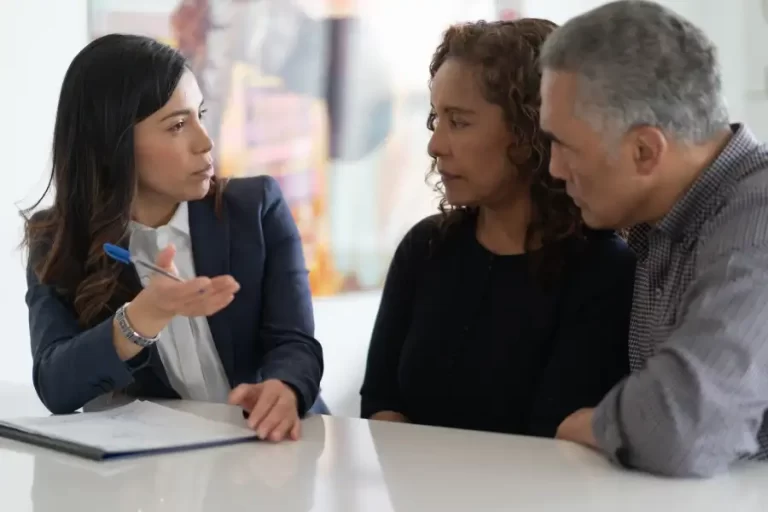Mortgage after bankruptcy
Getting a mortgage after bankruptcy can be difficult but not impossible, with many highstreet lenders declining applications with previous bankruptcy. Our specialist brokers and the lenders they work with believe that everyone deserves consideration, and could help you find a mortgage even after bankruptcy. This usually happens after a bankruptcy term of 12 months.


ADVERSE BROKER WINNER
Complete the form below and one of our specialist mortgage advisors will call you back at your arranged time.
Or call us now on 0330 232 0285
Speak to a mortgage broker now
There is so much jargon when it comes to mortgages.
Our mortgage advisors are experienced in all types of mortgages and can explain everything to you in a simple and easy to understand manner. We will also do the mortgage application for you! For a free no obligation phone call to discuss your situation, call 0330 232 0285 or complete the pre qualify
- Mortgages available even if the bankruptcy is still on your credit report
- Residential and buy-to-let mortgages
- Specialist lenders available
- Improved chance at finding a mortgage
- Usually only one application
Sarah Tinkler
Mortgage advisor
Mortgage help hub
Mortgage after bankruptcy – there are mortgages available even if you’ve been bankrupt
If you’ve been declared bankrupt, we can start looking at mortgage options once you’ve been discharged. This usually happens after a bankruptcy term of 12 months.
Some lenders will consider your mortgage application immediately after you’re discharged. Others might require you to have been discharged for at least 12 months, if not for several years. The main issue facing borrowers is their deposit amount. The longer since your discharge, the more likely a lender will be to accept you for a higher Loan to Value (LTV) product.
Mortgage after bankruptcy FAQ
Can I get a mortgage after bankruptcy?
If you’ve been bankrupt in the past, it’s likely you’ll struggle to find a mortgage with a high street lender.
Luckily there are plenty of specialist lenders that will consider applicants who’ve faced bankruptcy, and our brokers at Clever Mortgages could help you access these lenders.
How soon can I get a mortgage after bankruptcy?
Some specialist lenders might consider your mortgage application immediately after you’re discharged from bankruptcy. Others might prefer you to have been discharged for at least 12 months or for several years.
The main issue facing borrowers is their deposit amount. The more time that has passed since your discharge, the more likely a lender will be to accept you for a higher Loan to Value (LTV) product. If you’ve been discharged bankrupt for a year or less, a lender may need you to supply a deposit of at least 50%. After 2 or 3 years, provided you can prove good money management, this could drop to 25% LTV. When you have been discharged for over 6 years, you could become eligible for 95% mortgages.
How do I increase my chances of being approved for a mortgage after bankruptcy?
Getting a mortgage after bankruptcy can be difficult, with many high street lenders declining applications, but it’s possible. Our specialist brokers and the lenders they work with believe that everyone deserves consideration, and could help you find a mortgage even after bankruptcy.
Some lenders will consider your mortgage application immediately after you’re discharged. Others might require you to have been discharged for at least 12 months, if not for several years. The main issue facing borrowers is their deposit amount. The longer since your discharge, the more likely a lender will be to accept you for a higher Loan to Value (LTV) product.
How to get a mortgage after bankruptcy
Getting a mortgage after being made bankrupt is certainly possible, and there are a few things you can do to give yourself the best chance.
Speak to a specialist broker
Speaking to a broker, such as Clever Mortgages who have experience in dealing with mortgages after bankrupcy can help your chances of approval. We have relationships with lenders most likely to say yes.
Save up a large deposit:
The biggest factor in getting a mortgage after being discharged from bankruptcy is the size of your deposit. Your bankruptcy will play a large part in how you are viewed financially and having a larger deposit will help lenders view you as a lower risk, you’re more likely to be accepted for a lower LTV mortgage so saving up a fair portion of the property’s value will help increase your chances for approval.
Employment:
Having a stable income, or consistent employment in the same field helps boost your application and make you a more attractive borrower. Potential lenders will want to know you have the income needed to afford mortgage repayments.
What is bankruptcy?
Bankruptcy is a legal proceeding involving an individual who is unable to repay their debts. It allows those who have no way of repaying their debts to start fresh and – depending on assets owned – sometimes allows creditors to reclaim some of the money owed.
It costs £680 to apply for bankruptcy, and you can only do it online. Apply for bankruptcy
The GOV.UK website advises:
“You’ll need to provide information about your income, outgoings and debts, including:
- wage slips
- benefits or pension statements
- bills – for example, electricity, credit card and council tax
- letters from a bailiff or enforcement agent
You cannot submit your application until you’ve paid the full fee. You can pay in instalments if you cannot afford to pay it all at once. If you are struggling to pay the fee, contact a debt adviser about charities that may be able to help.”
How does bankruptcy work?
If your application, or your creditors application on your behalf, for bankruptcy is accepted then your assets would no longer be considered yours and your bank or building society account(s) would be frozen. There are exempt goods, like everyday household items and things you need to work, such as your computer or car.
Someone will be appointed to manage your bankruptcy, either an official receiver (an officer of the court) or an insolvency practitioner. This person will be your “trustee” and will handle your assets and bank accounts.
Your assets could be sold to help your creditors reclaim some of the money you owe. You might also need to make monthly repayments from spare income, but only if you can afford to do so. If your trustee decided you can afford it, this could become an Income Payments Agreement (IPA) and can last for up to 3 years.
While you’re in a bankruptcy order, there will be restrictions you need to follow. You cannot:
- take out more than £500 in credit without declaring your bankruptcy
- direct a company without court permission
- create, manage or promote a company without permission
- manage a business with a different name without declaring your bankruptcy
- work as an insolvency practitioner
A bankruptcy order usually lasts a year, after which you should be discharged. This would give you a fresh start, effectively meaning would no longer owe the debts included in your order and your creditors won’t be able to chase the money you owed.
You’ll still need to pay any debts not included in your bankruptcy order, such as student loans but outside of that you should be free from the debt and the restrictions associated with a bankruptcy order should be lifted. This means upon discharge from bankruptcy, pursuing a mortgage is viable.
Why use a mortgage broker?
Most of our customers have had some form of credit difficulties, from low credit score, missed payments or declined a mortgage elsewhere.
- Valuable knowledge, through years of experience helping customers
- Bad credit / poor credit experts
- Find the right mortgage first time
- Some mortgages are only available through a broker
- Help with the application process
- Advice on all options available, such as help to buy, guarantor or shared ownership
For free initial advice from our qualified mortgage brokers about a mortgage after bankruptcy, call 0330 232 0285 or click below to request a callback at a time to suit you.
How do I decide on the best route?
It is important before making a decision to consider the benefits and costs of each mortgage product. Clever mortgages take the time to understand your requirements and future plans to ensure you receive best advice tailored to your needs.
Complete the callback form and one of our experienced brokers will call you for a FREE no obligation chat
Case Study
Helping one customer buy a new home with a mortgage after bankruptcy
Mr and Mrs B had seen a property and managed to save a 10% deposit so they could buy it. Mr B had previously been bankrupt and still had outstanding defaults showing on his credit file. At Clever Mortgages we were able to help the couple:
Prove to the lender Mr B’s previous defaults had been paid as part of his bankruptcy Take out a new 90% mortgage so they could use their 10% deposit Secure a mortgage of nearly £65K over 20 years with a fixed rate for the first two years
| Bankruptcy years discharged | Maximum loan-to-value (LTV) |
|---|---|
| Less than a year | 60% |
| 1 year | 75% |
| 2 years | 85% |
| 3 years | 95% (subject to credit score) |
| 4 years | 95% (subject to credit score) |
| 5 years | 95% (subject to credit score) |
| 6 years | 95% (subject to credit score) |
Although Mr B had been discharged from his bankruptcy over three years since wanting to buy the house, there were some defaults on his credit file that were still showing as outstanding. Even though these had been included in the bankruptcy, several lenders had refused his application. We approached a lender which we knew may be able to help and worked with Mr B to gather the information needed to prove the defaults had been paid.
He was relieved to secure his mortgage, buy his home and enjoy moving in with his family.
| Balance | Payment | Rate | Product | Term | |
|---|---|---|---|---|---|
| New Mortgage | £63,900 | £362.86 | 3.09% | 2 year fixed rate | 20 years |
See if you pre qualify for a mortgage
Enquire about a mortgage with our pre qualify affordability form. No imprint on your credit score
Below are some of the lenders we work with
























